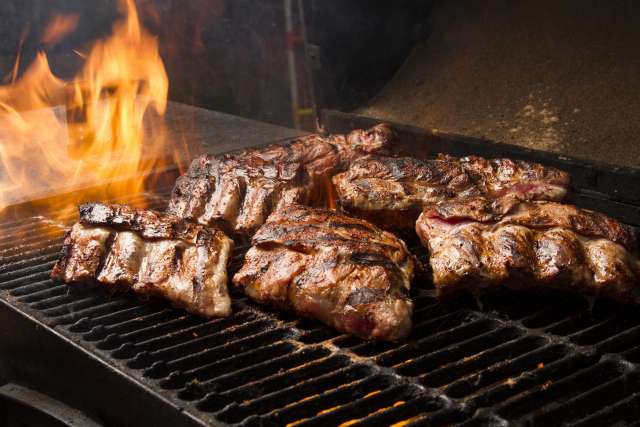Here’s some culinary advice that can keep you healthier for years to come.
Catherine Carpenter, PhD, a professor of clinical nutrition and a member of the UCLA Jonsson Comprehensive Cancer Center, warns that eating meat cooked over high temperatures can increase the risk of cancer.
That may not be what you wanted to hear while planning for a summer barbecue, but there are ways to cook in a healthy manner.
What is the cancer risk?
Grilling meat at high temperatures can charcoal the meat – a burning of the fat, which produces carcinogenic chemicals known as heterocyclic amines (HCAs) and polycyclic aromatic hydrocarbons (PAHs). Extended exposure to these chemicals – which also are generated from vehicle exhaust, corrosives and other pollutants – can damage DNA, which over time can develop into tumors.
“It's not so much a one-time experience, such as an occasion where you kept your meat on the grill too long and it turned black. It’s more of a message about one’s lifestyle,” Dr. Carpenter said. “You’ve been cooking that way for 30 years; every weekend, there’s a barbecue, you grill the meat at high temperatures, and all of this blackening occurs. That's when it becomes a problem in terms of cancer risk.”
Dr. Carpenter said long-term exposure to HCAs and PAHs has been shown to increase the risk of prostate, colon and pancreatic cancers. With PAHs in particular, which are aerosols produced from cooking smoke that are also deposited on the meat, the exposure potential is twofold: from contact due to ingestion of the food and through smoke inhalation.
Tips for healthier grilling
Dr. Carpenter offers these grilling suggestions to reduce the risk of exposure to these carcinogens.
- Don't grill the meat over direct heat. If you have multiple burners, put the meat over the burner that doesn't have a flame, cooking instead with indirect heat.
- If the meat has to be grilled over a direct flame, turn the meat over frequently to reduce exposure to carcinogens.
- If the meat has charcoal parts, trim them off before serving.
- Serve the meat with fruits and vegetables, which contain antioxidants that counteract the effects of the cancer-causing chemicals.
- Similarly, consider marinating the meat in a citrus-based marinade before grilling. The meat will absorb the citrus, with the antioxidants offsetting the chemical effects of the carcinogens.
“I’m not saying don’t barbeque the meat, but cook it in a way that's better for you in terms of cancer risk,” Dr. Carpenter said.




